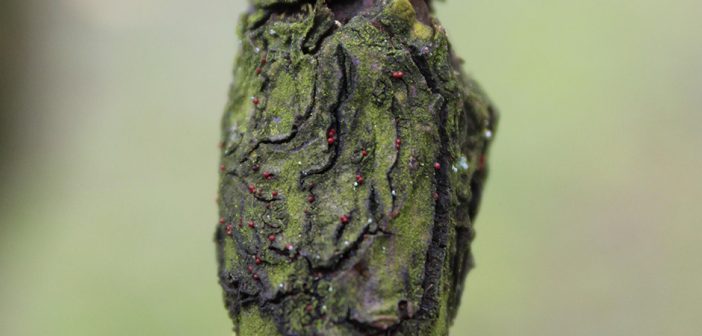Two new fungicides have been identified for the control of apple canker, caused by the fungus Neonectria ditissima, while research into integrated pest management of the disease is also providing promising results.
Canker is one of the most important diseases of apple and pear, causing cankers and dieback of young shoots, as well as fruit rot that can result in losses as high as ten per cent or more in stored fruit. In a two-year AHDB Horticulture funded trial examining control of Neonectria fruit rot, a range of experimental fungicides, a biofungicide and several alternative chemical treatments were tested for effectiveness. During the trials, fungicides Delan Pro and Syllit 400SC were found to be effective at reducing the incidence of fruit rot.
A five-year IPM study, also commissioned by AHDB Horticulture, is looking at how apple canker spreads. The project aims to identify an approach to reduce losses during tree establishment by targeting infection at propagation phase and improving the efficacy of orchard control.
Mark Holden, from Adrian Scripps Ltd is an industry representative of the project. He commented, “Losses of trees due to canker have risen significantly over the last 10 years due to more intensive tree planting, particularly with more susceptible varieties such as Gala, Braeburn, Kanzi & Jazz.
“The main issue is the lack of systemic chemical products in the growing season which are effective so it is encouraging that some new chemistry is coming through. It is hoped that, after the registration process is completed for these new products, the label requirements are not too restrictive.”

Photo Caption: Neonectria ditissima
Photo Credit: Wikipedia Commons
The post Effective controls for apple canker identified appeared first on Hort News.